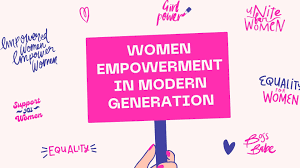A coalition of female entrepreneurs is urging the government and financial institutions to eliminate barriers that hinder women’s economic participation, calling for urgent reforms to boost financial inclusion and business opportunities.
During a virtual Women’s Economic Empowerment Media Conversation, organized by Gatefield, a non-governmental organization, speakers highlighted major challenges such as gender-insensitive policies, restrictive loan conditions, limited access to property, and a lack of awareness about available financial opportunities.
The discussion was inspired by a recent report from the Bill & Melinda Gates Foundation, where women expressed their aspirations for financial independence and greater economic influence.
Gender Bias and Financial Hurdles
Chichi Arinze, co-founder of Auto Girl, a mobility startup, shed light on the difficulties women face in male-dominated industries.
“Many investors take me less seriously simply because I am a woman in the mobility sector, a field often associated with men. The funding gap is real, but progress is being made. For instance, the Bank of Industry (BOI) now accepts third-party collateral, allowing women entrepreneurs to provide two references—one a civil servant and another offering collateral,” she said.
Uzoamaka Igweike, founder of Loom Craft Chocolate, emphasized that lack of awareness remains a significant hurdle.
“We’ve received grants from the Nigerian Export Promotion Council (NEPC) and the Brave Women Foundation, yet many women don’t even know such opportunities exist. Women need to actively seek out entrepreneurship programs tailored for them and join networks where these resources are shared,” she advised.
The Role of Fintech and Policy Advocacy
Osasu Igbinedion Ogwuche, another panelist, acknowledged that collateral requirements remain a major barrier for female entrepreneurs. However, she pointed out that fintech companies are stepping in to bridge the gap.
“We need media platforms to highlight success stories of creditworthy women. Studies show that 95% of women repay their loans on time, proving their reliability,” she noted.
Fifehan Osikanlu stressed the need for stronger policy interventions and media advocacy to drive change.
“The media must keep pushing for reforms until women are fully integrated into the economy. The Central Bank of Nigeria (CBN) should enforce lending quotas, requiring commercial banks to allocate 30-40% of their loans to women while ensuring female entrepreneurs have 50% access to intervention funds,” she suggested.
A Call for Systemic Change
These female entrepreneurs are demanding concrete actions from financial institutions and policymakers to level the playing field. Despite progress in gender advocacy, many Nigerian women continue to face systemic barriers that limit their access to education, economic opportunities, healthcare, and leadership roles.
Addressing these challenges requires a collective effort from the government, civil society, and communities. Ensuring access to quality education for all girls, providing financial empowerment programs, and enforcing stronger legal protections against gender-based discrimination are essential steps toward closing the economic gender gap.
By removing these obstacles, Nigeria can unlock the full potential of its female entrepreneurs, fostering inclusive economic growth that benefits the entire nation.

